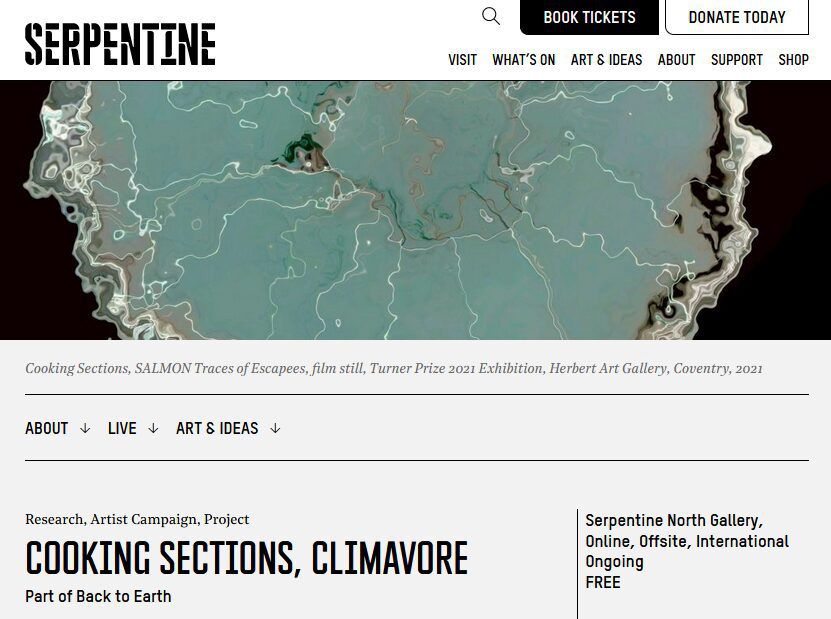
Baráttan fyrir bættri umgengni við umhverfið og lífríkið birtist með ýmsum hætti. Ein áhrifarík aðferð er að sniðganga einfaldlega eldislax sem er alinn í sjókvíum. Veitingastaðir á listasöfnum víða á Bretlandseyjum hafa einmitt hver á fætur öðru ákveðið að velja þessa leið á undanförnum mánuðum.
Og munum að sjókvíaeldi skaðar ekki aðeins náttúruna heldur fer hörmulega með eldisdýrin sem drepast umvörpum í netapokunum.
Segjum nei við sjókvíaeldi. Það er óboðleg aðferð við matvælaframleiðslu.
Síðasta dæmið er breska nútímalistasafnið Serpentine.
Fjallað er um Climavore verkefnið á síðu Serpentine:
As part of Back to Earth, spatial practitioners Cooking Sections are continuing their ongoing research project, CLIMAVORE. Working with scientists, chefs, farmers, policymakers and practitioners from several other disciplines, CLIMAVORE proposes an adaptive, regenerative form of eating – a shift in the economy and ecology of how we consume, interact with and produce food, towards environmental well-being in the climate emergency. Restaurants in museums across the UK are Becoming CLIMAVORE, removing farmed salmon from their menus and replacing it with ingredients that improve water quality and cultivate marine habitats like seaweeds, sea vegetables and bivalves. The cafe at Serpentine has introduced a CLIMAVORE menu, which includes seaweed soda bread, rope grown mussels and an agar panna cotta. By Becoming CLIMAVORE, cultural institutions worldwide can be at the forefront of a collective effort to re-imagine existing food justice models and create new ones in the face of the climate emergency.
